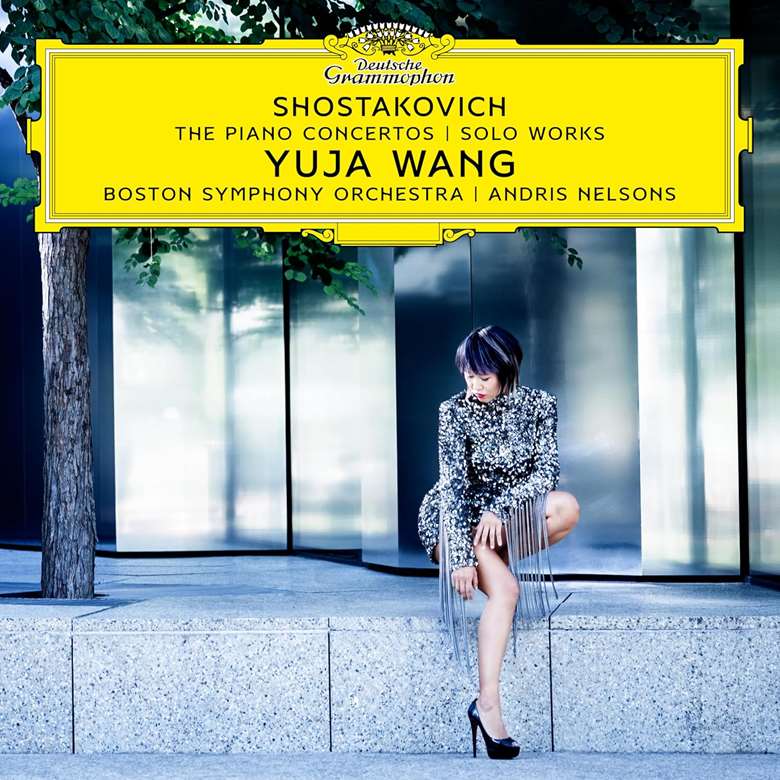Shostakovich: The Piano Concertos; Solo Works
Bryce Morrison
Friday, May 23, 2025
'Yuja Wang’s performances are of a wholly individual character and brilliance that discourages comparison'

Shostakovich’s major keyboard works represent a substantial reflection of his early ambition as a concert pianist. Both the piano concertos, though polar opposites in mood, are playful and affectionate retreats from high seriousness. The first, for solo trumpet and piano, is a bright and satirical comment on the past, on the Romantic grandeur of the piano concertos of Tchaikovsky and Rachmaninov. And it is these very qualities that surface in Yuja Wang’s spine-tingling bravura, in playing as richly and characterfully varied as it is scintillating. Her way with the First Concerto’s Lento – its mock-baleful, world-weary waltz – is as dreamy and confiding as her brio elsewhere is infectious.
In the Second Concerto, composed as a birthday present for his pianist son Maxim, Shostakovich veers away from gaiety and abandon to a gentler idiom, though touches of parody are never far away. There is a fatherly reminder of the necessity for technical practice in the finale’s gentle mockery of scales and, again, Yuja Wang’s response is vivacious and bright as a pin.
For encores there is a brief but brilliant selection from the Op 34 Preludes and the Op 87 Preludes and Fugues. The Op 34 No 5 Prelude seemingly finishes before it has started, while the Prelude and Fugue No 15 is ferociously exuberant. Again, Yuja Wang makes it difficult to imagine playing more sprightly or more in sympathy with Shostakovich’s temperament. Even with Martha Argerich’s legendary recording of the First Concerto, with Tatiana Nikolayeva’s pioneering set of the 24 Preludes and Fugues, and with superb selections by Richter and Gilels, Yuja Wang’s performances are of a wholly individual character and brilliance that discourages comparison. The Boston Symphony Orchestra are superb, alert partners in the concertos and DG’s sound is ideal in its clarity and atmosphere.









